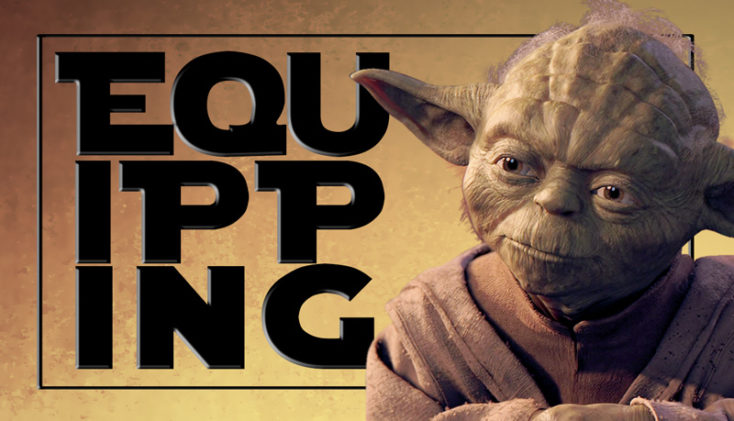In the last chapter of our Extreme Leadership journey, we kicked off the topic of Equipping with a look at Self-Equipping. In part 2 we want to look one of the most powerful equipping tools: our own stories.
You’ve probably heard the phrase “facts tell, but stories sell”. Most people think of that in a sales context, but the larger principle is that stories connect with people in a way that few other things can and should be used anywhere you want to make a real connection with other people.
One of the things that make a story a unique equipping tool is that everyone already has one. Every person has experienced things that are unique, interesting, funny, and memorable. Every person has experienced success and failure–and learned valuable life lessons from both. These lessons have intrinsic value. They can be shared in story form to help others on their journey.
You may not yet be convinced that you have stories worth sharing. Hear me out. Not only do you have stories worth sharing, you have stories worth working on before they are shared.
What does that mean?
As with all other equipping tools, we must prepare and equip ourselves to use stories effectively. The 3-step process for delivering your stories with maximum impact is: Reflect, Refine, Relay.
Reflect
The first thing we have to do is to spend some time reflecting on our lives in order to mine a collection of stories. Don’t overthink it. Write down experiences that were truly memorable for you. If the experience was memorable enough that you remember significant details years or even decades later, it will likely be memorable as a story. You may be surprised how often an important life lesson becomes obvious after reflecting on a story that you remembered at first only because it was funny or scary.
This process can be repeated over and over. Each story that you recall can help you think of another. Keep a list of these stories handy and add to it regularly. This way you’ll have a collection of stories in your toolbox ready to use while you work on your new ones.
Refine
The refine stage is where we prepare our story to be used. This takes considerable time and effort. Without it, the experience that was so memorable to you may sound like pointless rambling to the people you want to help.
Much can be learned about story refining by listening to advice from legendary storytellers. Ernest Hemingway said, “writing is rewriting”. William Faulkner said that “In writing, you must kill your darlings”, a hint that the editing/refining process goes on long after you think it’s good.
Taking a story from the “good enough” level to the “great!” level takes a lot of effort and intentionality. I would say I’m a decent natural storyteller, and yet I needed 50+ hours of hard work to refine one of my personal stories into an effective three-minute anecdote that could be used from a national stage!
Analyze your story. What is the absolute best takeaway/lesson? Identify it and stick with it. Can you make the story more powerful by shortening it–eliminating details that aren’t necessary for context? Do it. The prep work that you put in during the refine stage will pay huge dividends.
Relay
That powerful personal story with the compelling takeaway won’t help anyone if you keep it tucked away in a notebook. Be intentional about sharing your stories. There is so much power in that. Your stories can engage people. Your stories can have a strong positive influence on others.
Make sure that you are vulnerable and transparent throughout the process. One of the most powerful ways to equip others is to reflect on and unpack our own personal experiences–the good, the bad and the ugly. Transparency resonates. Most people are very aware of their own screw-ups. When you share yours–and the lessons that came with them–it can have a huge impact.
One of the most powerful ways to equip others is to reflect on and unpack our own personal experiences Click To TweetMy challenge questions for you are:
What have you learned?
How prepared are you to share those things with others in a compelling way?
What specific things can you do to be better prepared?
I encourage you to build your own personal repertoire of stories that you can pull from. Eventually, you’ll have a powerfully compelling story to fit almost any situation. It will take considerable time and effort to but the payoff comes when you are able to equip and encourage others through your own personal experiences.
I’d call that a rewarding experience all in itself!
